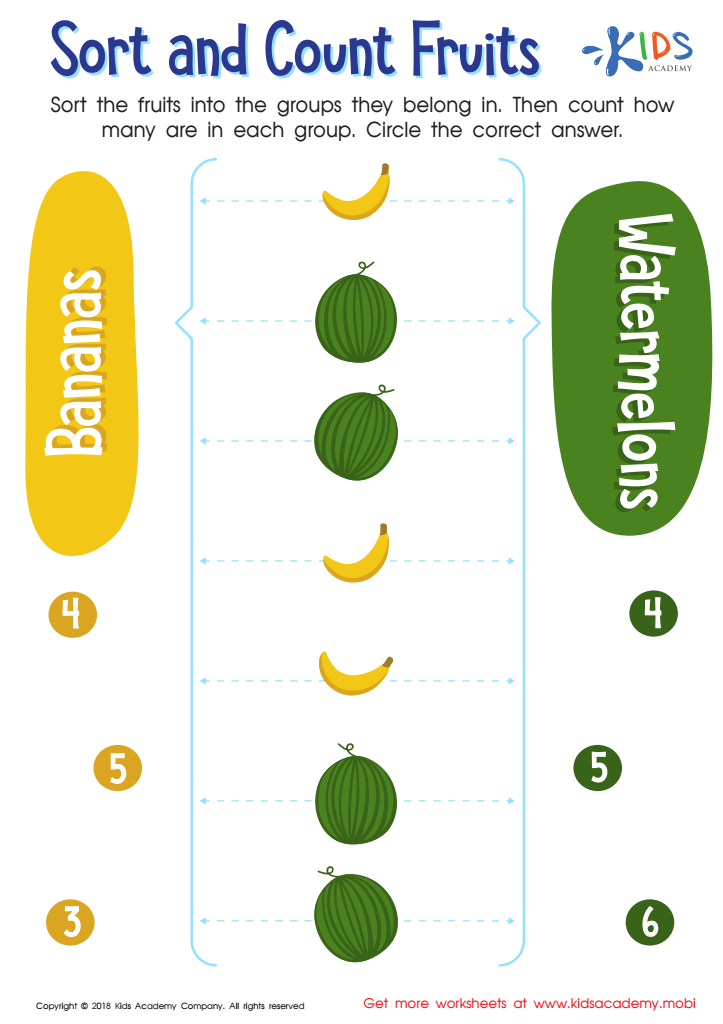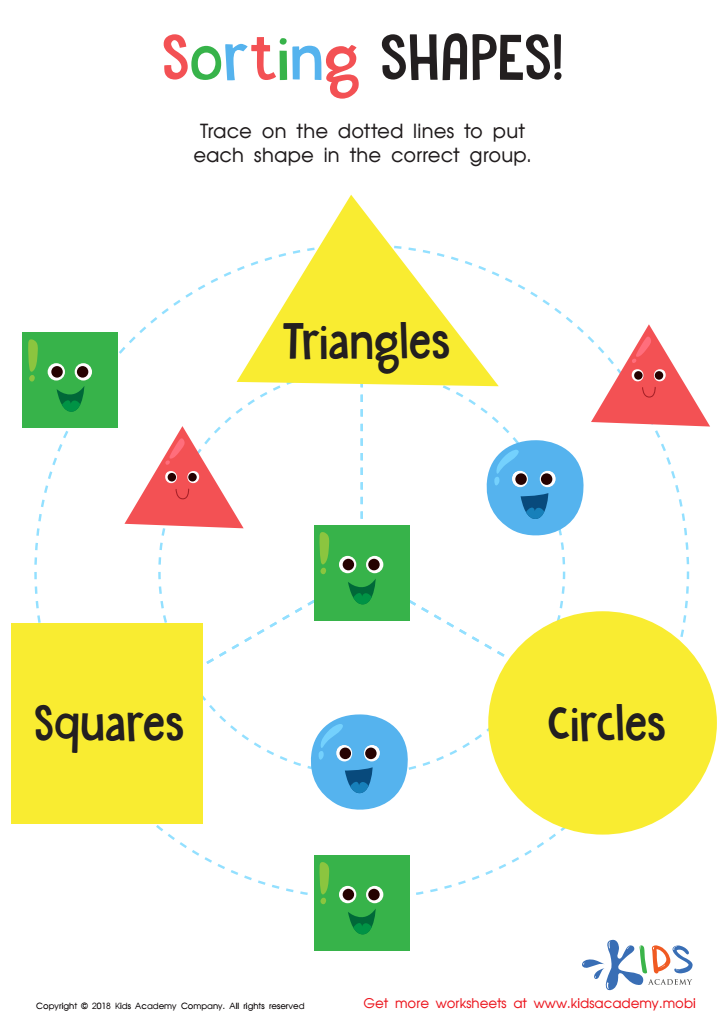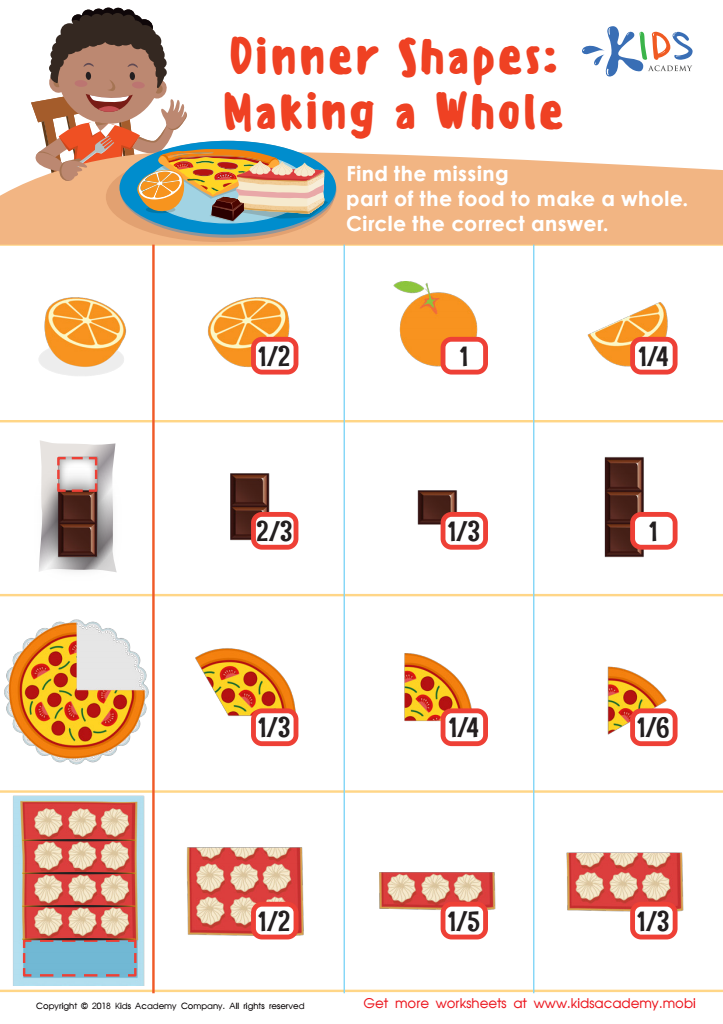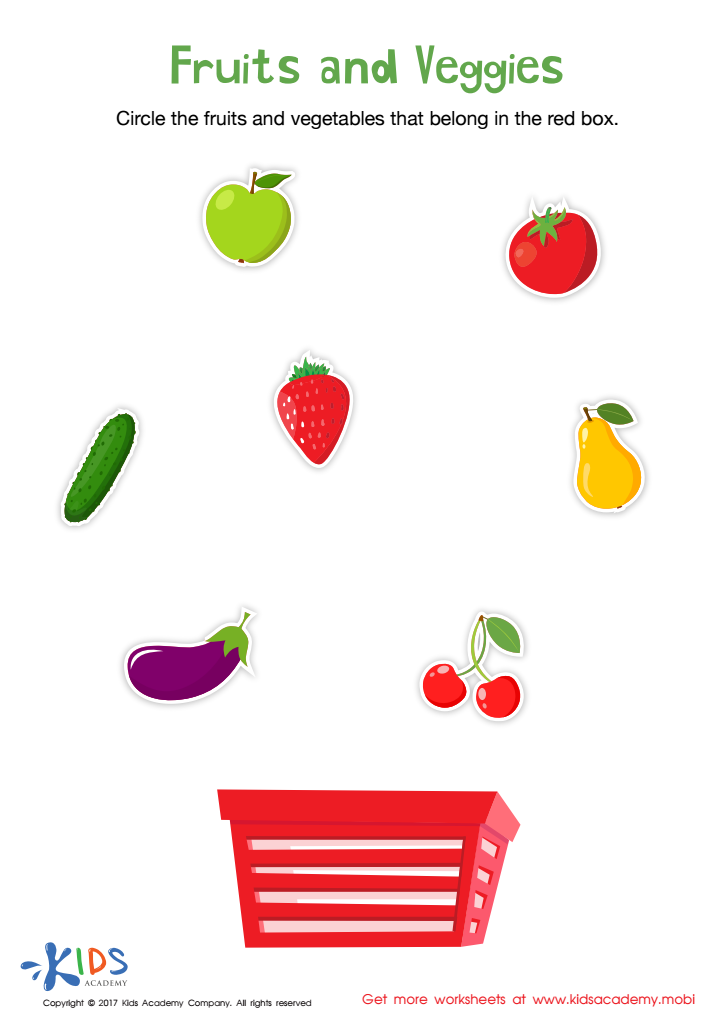Sorting skills Normal Math Worksheets for Ages 6-9
5 filtered results
-
From - To
Develop essential sorting skills with our engaging Normal Math Worksheets for Ages 6-9. These expertly designed activities from Kids Academy help young learners enhance their categorization and organizational abilities while building a strong foundation in math. Perfect for both classroom and home use, our worksheets offer a variety of fun exercises that teach children to sort by size, shape, color, and more. With guided practice, kids boost their critical thinking, attention to detail, and problem-solving skills. Start your child's educational journey with our fully customizable, printable sorting worksheets—designed to inspire and educate young minds!


Sort and Count Fruits Worksheet


Sort and Count to the Moon Worksheet


Sorting Shapes - Part 3 Worksheet


Dinner Shapes: Making a Whole Worksheet
Sorting skills are crucial for children ages 6-9 as they form the foundation for more advanced mathematical concepts and cognitive development. At this age, children are transitioning from concrete to more abstract thinking, and sorting provides a hands-on way to classify and organize information, aiding this transition.
Firstly, sorting helps children learn to recognize patterns and relationships. By grouping objects based on different attributes like color, size, shape, or type, they're able to see how things are alike and different. This recognition is fundamental for understanding more complex mathematical ideas, such as sets, categories, and data analysis.
Secondly, sorting enhances children’s problem-solving skills. When kids sort objects, they're making decisions and developing criteria, which fosters logical thinking and critical analysis. These skills are transferable and valuable in subjects beyond math, like science and social studies.
Additionally, sorting nurtures fine motor skills and attention to detail. Handling various objects to group and classify them requires coordination, focus, and precision. This can improve hand-eye coordination and prepare children for tasks like writing or more intricate hand-based activities.
Lastly, engaging in sorting exercises early can boost a child’s confidence and independence. As they master sorting tasks, they build a sense of accomplishment and autonomy, readying them for more challenging academic and everyday tasks. Overall, cultivating sorting skills is a stepping stone to future academic success and personal development.
 Assign to My Students
Assign to My Students




















